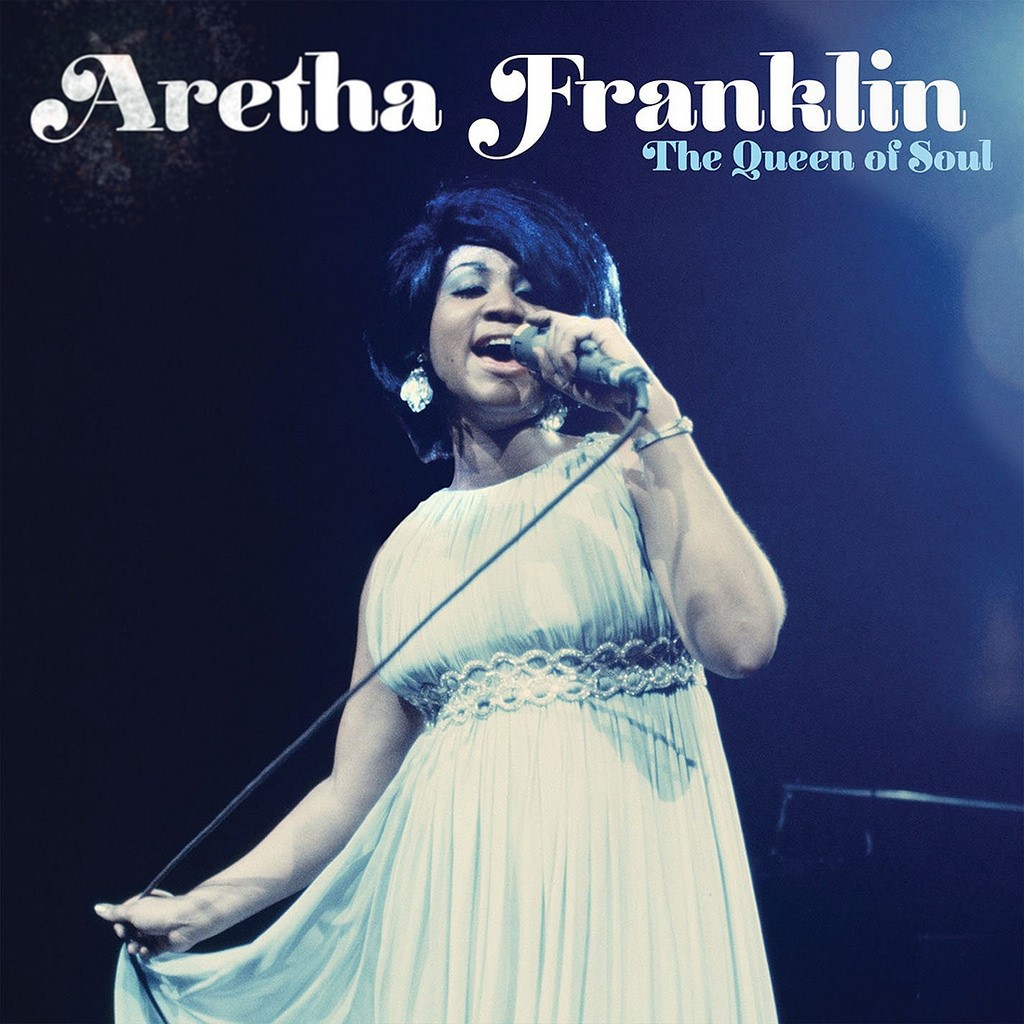Close your eyes and imagine this… it is 1956, you are in Detroit, Michigan at New Bethel Baptist church. You are sitting in the pew of the church waiting for the service to start. You are surrounded by people who are eagerly talking about a singing prodigy, but you think it’s crazy, since she is only six. You are flipping through the pages of the missal and suddenly, the piano keys strike and this powerhouse of a voice starts to sing gospel hymns. You look up and see a six-year-old girl that knocks the roof off the church. She belts a high note that causes the crowd to jump to their feet! You cannot help but stand up and clap to the beat of the gospel and enjoy her singing; and you wonder to yourself, who is this young girl with such an amazing voice?

This young, self-taught child prodigy has the name of Aretha Louise Franklin. At that young age of six, she was recognized for her powerhouse voice and talent at playing the piano. At six, she launched her career as a singer. From ages six to fourteen, Aretha started to record tracks with small label for one of her earliest albums called Songs of Faith that she had sung at church in 1956. Because of her early fame, she traveled with her father, Pastor Clarence LaVaughn (C.L.), who was touring with a revival show he was conducting, and that gave young Aretha exposure. This exposure included becoming a mother at the age of fourteen.1 She was also courted by a number of labels, such as RCA in New York and Motown in Detroit.2 She signed with Columbia records, who helped her release her first album in 1961, called simply Aretha. Colombia records helped her record the songs she sang, but they didn’t really do much to help promote her, leading her to believe that her talent was going to waste and not being showcased. Because of this, Aretha decided to switch labels, and a whole new world opened up to her.3

In 1967, Aretha released her first album with Atlantic Records, I Never Loved A Man (The Way I Love You). It quickly achieved gold status, and her hit single “Respect” went to the top of the R&B and pop charts that same year. Not only did Aretha’s fame shoot to the tops of the charts, but she also won her first two Grammy awards. The hit had her name all over it, but this song was not truly hers. “Respect” was written two years before Aretha made it known and popular.4 In 1965, soul artist and lyricist Otis Redding wrote “Respect” as a plea from a man to a woman to respect him when he comes home after all the activities she engages in when he is not around. Throughout the song, Redding highlights and praises all the good and love he has for this woman in the first verse, singing “What you want, honey you got it and what you need, baby you got it,” as well as in the second verse, “Hey little girl, you’re sweeter than honey and I’m about to give you all my money.”5 These verses are what lead up to the chorus, where he sings repeatedly, “Do me wrong, Honey if you want to, you can do me wrong while I’m gone, but all I’m asking is for a little respect when I come home.”
This song that once belonged to Redding became a greater success for the young Aretha Franklin. On February 8, 1967, the A-side of her single “Do Right Woman- Do Right Man” was cut, and she had no choice but to continue to figure out another song to put on that side. So, Jerry Wexler (Aretha’s producer with Atlantic Records) gave her time to decide to record another song for the album. Ten days passed and finally, Aretha called and said, “Mr. Wexler, it’s Miss Franklin calling. I’m ready to record. However, I won’t be recording in Muscle Shoals. I will be recording in New York, I know you have studios in New York.” Wexler responded, “Yes we do. How about the band?” She replied, “Bring up the boys from Muscle Shoals. They understood me. As far as the backgrounds go, I’ll be with my sisters [Erma and Carolyn].” Her sister Carolyn reminisced about this moment and shared, “I remember arriving in New York with Aretha and feeling like we were all on a mission. When she (Aretha) was in her element, no one could touch her, we were her element.” Aretha immediately headed to the piano in the studio and played and recorded multiple songs, including “Respect,” and that was the moment of truth. After recording, Jerry Wexler had immediately played Aretha’s version of “Respect” for Otis Redding, and his reaction was very happy. Wexler said “Redding broke into this wide smile and said ‘The girl has taken that song from me. Ain’t no longer my song. From now on it belongs to her.'” Every time it was played for Redding, nothing but a smile came upon his face.6
While Aretha recorded the song “Respect,” she refined it so many times until she bent it to her will. Her sisters Erma and Carolyn sang the background vocals many times, over and over just to get it right. She replaced the stamping rhythm and horns of celebration to a more cheerful groove and more “quizzical lick” on the guitar. After adjusting the balance of instruments to her liking, she then made an adjustment to the pronouns of the songs, in which she called the sexual politics of the song. For example, when Otis sang, “What you want, honey you got it,” Aretha sang, “What you want, baby I got it.” When Otis sang, “Do me wrong, Honey if you want to,” Aretha sang, “Ain’t gonna do you wrong, if I don’t want to.” These differences in the songs amplified her powerhouse voice with the oohs and chants of “justa little bit” and “re-re-re-re-spect.” (Fun fact: “Re” was actually a nickname that Aretha’s family called her). After all of this, the real difference was the change in the third verse of the song where the verse had a different meaning coming from an African American woman’s mouth instead of an African American man’s. This verse highlighted a moment for all the woman who had to face the abuse of their partner because of their worth being denied through emasculation. Aretha made the song “Respect” to reflect a fundamental emotional, sexual, and economic reality in which many African Americans lived.7 The chant, “Sock-it-to-me” was used as a demand for respect for anyone in a racial and social condition of inferiority. The demands “Find out what it means to me” and “TCB” refer to the line in her song, “Dr. Feelgood,” where she sings that taking care of business is nothing but a game men play. Lastly, Aretha ended the song by spelling out the word “R-E-S-P-E-C-T” letter by letter, and the verse, “All the time, keep on trying, I’m running out of fools, I ain’t lying.” When “Respect” was released, many of her followers had some knowledge of the previous recording of the song, the original by “a man who epitomized the male prerogative of a soul singer.”
After the song was finally recorded and ready to release, Carolyn mentioned, “When Respect was recorded, she heard her pain throughout the song that has been hiding because of the ongoing fighting with Ted White, her husband.” This song did not stop the violence Ted was inflicting on her, but this song truly was a getaway. This song not only reached the top of the Billboard charts but it received much fame for woman across the world going through a situation similar to Aretha’s. “Respect” won many awards, and was placed at number four in the “Top 365 Songs of the Twentieth Century” in a 2001 retrospective; and in 2011, Rolling Stone Magazine placed it at number 5 on its list of 500 Greatest Songs of All Time. This fairy tale dream of a young girl who had a promise from her father in hand, had finally came true. Her breakthrough in 1967 not only came with emotional chaos and a deep, harsh reality, but the fame of being the Queen of Soul doing what she loves, singing! 8

Aretha, being both an icon and role model in the feminist and civil rights movements, succeeded in winning awards, being honored to collaborate with artists such as Stevie Wonder, perform at Dr. Martin Luther King’s funeral, among other accolades. All the fame and fortune she has earned has led her to the 28 stunning awards for her music and 32 nominations for awards. These awards include “Best Rhythm and Blues solo female vocal performance,” “1991 Legend Award,” “1994 Lifetime Achievement Award,” “2008 MusiCares Person of the Year Award.”9
Sadly, on August 16, 2018, after her retirement in January, she passed away in her hometown of Detroit. The cause of her death was due to pancreatic cancer of the neuro-endocrine type that she had been fighting for a while after her singing career ended. We remember Aretha Franklin for the powerhouse gospel voice that she has shared and delivered so well in order to be forever known as the Queen of Soul. May her soul rest in peace.
- St. James Encyclopedia of Popular Culture, 2nd ed., 2013, s.v. “Franklin, Aretha (1942– ),” by Thomas Riggs. ↵
- Stuart A. Kallen, The History of R&B and Soul Music: The Sweet Sounds of Soul (Detroit: Lucent Books, 2014), 43-48. ↵
- Nicolas Slonimsky and Laura Kuhn, Baker’s Biographical Dictionary of Musicians Vol. 2. Franklin, Aretha, 2001, (New York: Schirmer, 2001), 1174-1175. ↵
- Encyclopedia of African-American Culture and History, 2nd ed., 2006, s.v. Franklin, Aretha., by Bud Kliment. ↵
- Simon Glickman and Brian Escamilla, Contemporary Musicians Vol. 17, Franklin, Aretha, 1997, (Detroit: Gale, 1997), 88-91. ↵
- David Ritz, Respect (New York: Little, Brown, and Company), 161-163. ↵
- Johnathan Gould, Otis Redding (New York: Crown Arechetype), 400-402. ↵
- Johnathan Gould, Otis Redding (New York: Crown Arechetype), 400-402. ↵
- Gabriel Burns Stepto, The African-American Years: Chronologies of American History and Experience: The Civil Rights Struggle: From Nonviolence to Black Power (New York: Charles Scribner’s Sons, 2003), 398-403. ↵



36 comments
Kristen Leary
This was a wonderful article! I love the way you opened with having the reader picture themselves there at the very beginning of her singing career. The imagery made me feel like I was there and was a great way to set up your article on Aretha’s initial rise to fame. I had no idea the song “Respect” had such a different meaning when it was written, and I love how she redefined it, reflecting from a woman’s perspective, especially given her personal experience. The article was very engaging and very easy to read; and definitely on a topic that I would want to read about!
Kensley Dieckow
I love this article! You really did a great job in the introduction to paint a picture of what it was like to attend one of her church services and how she would take the entire congregation for a surprise. Her song “Respect’ is truly on of the most iconic songs in all of history, and I’m really happy you chose to focus on it in your article. During the era of “Respect” was one of the most important times of her life with her battling domestic abuse with her husband, reuniting with her sisters, and her finding her place in the civil rights movement. I’m very happy with the direction of your article.
Maria Ferrer
Sienna,
This is a great article! I really enjoyed reading it. The way you started writing your article made me feel like I was really inside the chapel listening to her sing. I have heard her song millions of times before, but never really knew the meaning behind each word until after I read this article. I didn’t know that “Re” was the nickname her family gave her. She is clearly an icon in the feminist and civil rights movements. It is truly remarkable that with the power she had to reach many people with her voice, she decided to speak up and express her feelings and thoughts towards women and African Americans.
Sophia Rodriguez
Aretha Franklin is one of the most best singers in the world. I grew up listening to her music and “Respect.” I did not know that the song was from Odis Redding and I thought it was amazing how he is not upset that she took it though. I love how she is able to make her songs her own and be such a unique artist. I love how she just did not make her career only music it was also about women’s and civil rights movement. Aretha Franklin is another time less artist that the world will never forget.
Emmanuel Diaz
this artcile surprised me. I know the song to be fun and put in a lively mood because of the melody. I heard it when i was younger when it was put on by my teachers and i always sang along to the parts i knew but i never knew the deeper meaning of it. I’m proud of it. Arethra franklin’s voice is very empowering and iconic. I also was surprised that she built off of another song but made it her own. The song is a classic and also i was also shocked to learn she preformed at Dr. Kings’ funeral. She is an iconic women and empowers as well. Her voice is symbolic and one of a kind.
Rahni Hingoranee
Wow, what an amazing article! I had no idea that the iconic song by Aretha Franklin was more like a cover. This article made me know much more about her background and rise in the industry that I otherwise wouldn’t. The most disappointing and depressing was learning about how her husband would hurt her but it is nice to learn that music was her escape from it. She was such an amazing talent. The article did a very good job of grabbing your attention in the exposition.
Briana Montes
Very well written, I find it surprising that someone can have such a beautiful voice at just a young age. I never really listened to her but I know she is a very inspirational singer. She started at such a young age and you can see how much work she put into her career. I enjoyed that this article took me through her rough times as a child and her highlights. She is a queen!
Lilia Seijas
Understanding the meaning and complexity that came from this song has made me realize how much of a feminist Aretha Franklin was. This article explains the pain she went through all throughout her childhood, and into her adult life. Very few know about the type of relationship abuse she went through,(certainly, I wasn’t aware of it), and this article brings in a very unbias and factual perspective as to how her professional and personal life played out.
Sofia Martinez
Most know that Aretha Franklin was a very talented singer and songwriter, but I never would have thought the process that she had to go through in order to be fully recognized in the music industry. She gave and sacrificed so much energy and work into her professional career ever since she was a young child, (singing in gospel choir in church and solely performing for her church) shows how much she wanted to be known. After reading the take on how “Respect” came to be is really an inspiring story, she made Otis Redding convince himself that her version of the song sounded better, which later on, passed it down to her.
Cassandra Sanchez
I really loved how this article gave the readers a more detailed insight of Aretha Franklin. I have only been told briefly of her impact on society and I only know of her famous song “Respect” so getting an insight into how her career began and how this song became hers, gave me a better understanding of her as a singer as well as a person. I am also amazed at how her career started at such a young age because you don’t really hear about singers this young as often anymore. I was completely unaware that another artist had written this great song, and reading about how much Otis Redding appreciated and loved her version of his song was incredible.